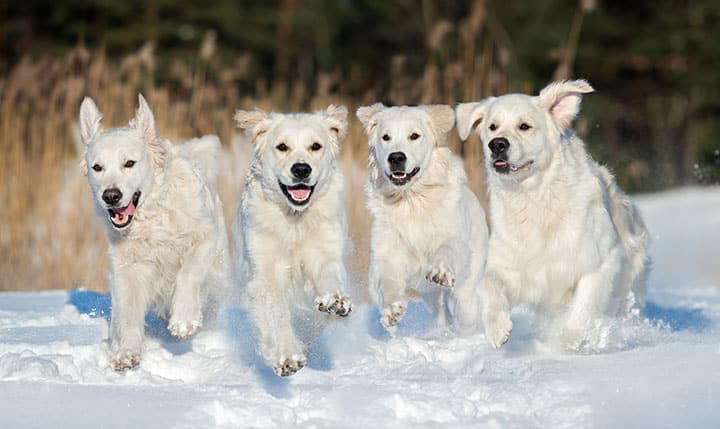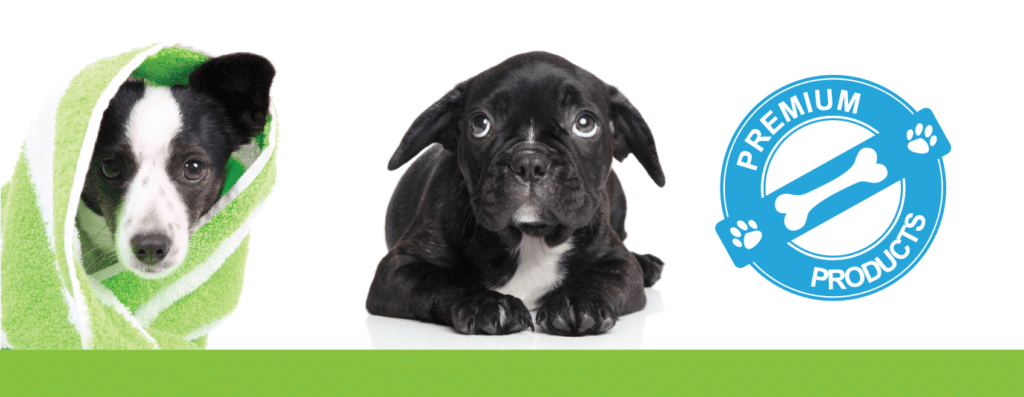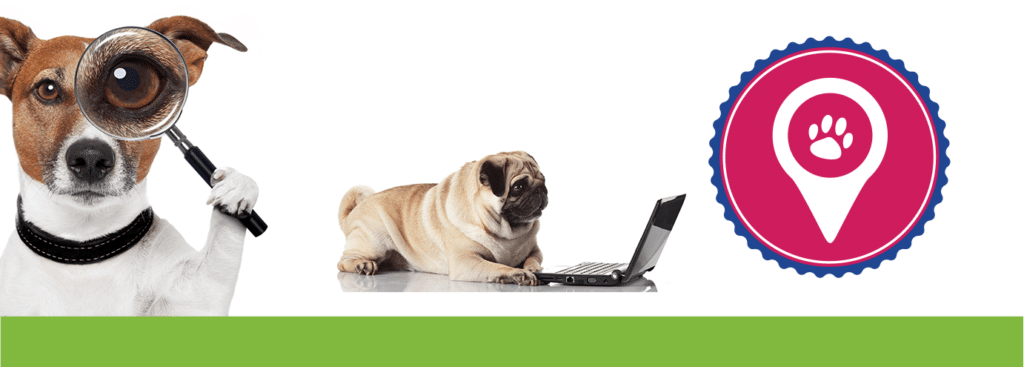Best Grooming Styles for Dogs that Live in the Snow
With the arrival of winter for pet owners in snow states comes a change in the dog\’s grooming routine. Disrupting your dog\’s grooming routine during the cold months can actually do unintentional harm to your dog. Dogs in snow will need additional tending to compensate for the cold temperatures but a longer coat in the snow is not the answer.
This is especially true for dog breeds that need more grooming maintenance like Maltese, Shih Tzu, Poodle, or Bichon. Nordic dog breeds with double-coats will also still need regular grooming to maintain their coat\’s health. Pomeranians and Huskies both have a double-coat, but for the natural insulation process to work their coats need to be cared for.
The worst mistake a pet owner can make is to neglect grooming for their dogs in snow. When dogs walk through the snow they are more likely to collect debris. A longer coat doesn\’t do much to keep a dog warm. Worse, it escalates the likelihood of severe matting.
Often in late February pet owners are scheduling appointments and their dog hasn\’t been groomed in months. A few months worth of matting can severely damage a dog\’s coat. It will take tedious brushing to remove the mattings and depending on the severity, your dog may need to be shaved down. Removing matts by brushing is painful for a dog and shaving is the most humane alternative. To prevent this, keep up with your regular grooming schedule during the winter months. If you choose to let your dog\’s coat grow long, please brush them daily!
Grooming Style For Dogs in Snow
Depending on the temperature outside, we typically recommend maintaining the same regular cut you get during the rest of the year. If you get a \”puppy cut\” or \”kennel clip\” stick with this. Since every dog is different, speak with your groomer about the best winter trim options. The fact is, your dog will mostly be inside during the winter—cuddling up with you inside a toasty central-heated house. Unless you have a sled dog, keeping a \”winter coat\” isn\’t practical.
If your dog is outside for an extended amount of time (we don\’t recommend this) you can get them a sweater and booties to protect them from wind chill and snow melting agents on the ground. The rule of thumb for the winter is keeping the length around an inch. At this length, your dog will be warm enough while he\’s outside and has a coat-length that is easily maintained.
A convenient way to stay on top of your dog\’s grooming is to become a Splash and Dash signature service member. You can drop your dog off at your leisure for unlimited brushing and bathing.
Brushing is Essential!
As always, brushing is the simplest way to keep your dog\’s coat in pristine condition. Brushing removes tangles, dirt, and dead hair. The process also increases skin circulation and distributes natural oils.
Even short-haired breeds will need daily brushing. We recommend a slicker brush, which can get down to the root of the hair. Thick coats trap dander and dead hair that needs to be removed. A good slicker brush can clear this away.
If your dog is starting to matt, be careful! If the matting is excessive you should let a professional groomer handle the situation. Matting is a painful experience for a dog. It\’s a massive tangle of hair that is under constant pulling and pressure. Brushing stops matts from forming.
Protect the Paws
Walking through the snow is strenuous on our dog\’s paws. Issues like cracked paws, irritation, infections from snow, salt, mud, gravel, and the overall low temperatures can develop from exposure to the snow. Also, snow melting agents like rock salt can be very harmful. Not only can they burn a dog\’s paws but if a dog licks the substance off their paws it can upset their stomach or even be toxic.
If you see driveways or sidewalks with a blue or green colored substance poured over the walkway it\’s best to avoid walking your dog over this area.
A good habit to establish for dogs in snow is to wipe off their paws after every outing. This will dry their feet and remove any debris. Watch out for snow or mud balls between the pads.
Winter Bathing
It is perfectly fine to have your dog washed during the winter. For a dog, walking through the snow is like walking through a freezing cloud of dirt. The snow is their new toy that gets them just as dirty as the mud. Dogs love it!
When you take your dog to the pet salon they should never leave wet. Dogs must be thoroughly dry before going outside into the cold temperatures to prevent hypothermia. Even during the warm month\’s dog groomers should fully dry every dog.
Between baths, you can sprinkle dry shampoo or cornstarch into your dog\’s coat. Be sure to brush the powder out completely. This will refresh your dog\’s coat and remove any foul odors. Since your dog will be spending more time inside, in close proximity of the family\’s noses, bathing will be vital.
Don\’t Fleas Die in the Winter?
Fleas are less prevalent in the winter and ticks are mostly dormant while it\’s cold out. For this reason, pet parents and dogs alike rejoice the snow.
However, fleas are resilient creatures and can still live for months in your dog\’s bed or your furniture. Maintain your dog\’s flea treatment and stay vigilant for ticks.
Most dogs love, love, love, the snow and watching a dog play in the slushy-cold warms the heart. Whether you live in sunny Florida or are shacking up for the winter in Minnesota, please exercise good pet care for your dogs in snow!
Follow Splash and Dash Groomerie & Boutique:
- Website: http://splashanddashvip.com/
- Website: https://splashanddashfranchise.com/
- Facebook: https://www.facebook.com/splashanddashfordogs/
- Instagram: @splashanddashfordogs
- LinkedIn: https://www.linkedin.com/in/dan-j-barton-622ab517
- Twitter: splashanddash4dog



